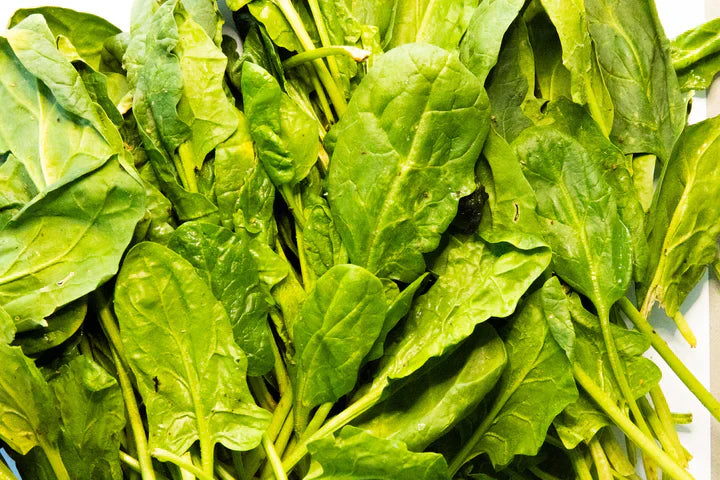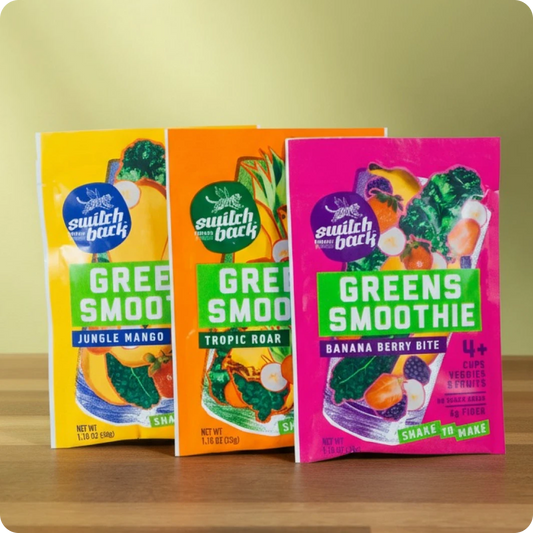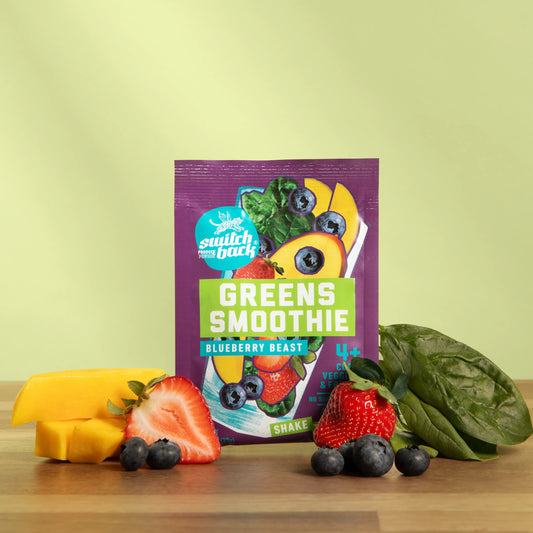
Benefits of Spinach In Smoothies
Why Spinach Should Be a Staple in Your Diet and Smoothies!
Spinach is often hailed as a superfood—and for good reason. This leafy green is low in calories but incredibly rich in nutrients that support nearly every system in your body. Whether you enjoy it raw in salads, sautéed as a side, or blended into smoothies, spinach is a versatile and powerful addition to your daily meals. There is a reason why our smoothies all have spinach - and the reason is below!
Nutritional Powerhouse
Spinach is loaded with vitamins and minerals that are essential for optimal health. One of its standout nutrients is vitamin K, which plays a critical role in blood clotting and bone health. Just one cup of cooked spinach provides over 1000% of your daily recommended intake of vitamin K!
It’s also an excellent source of vitamin A (in the form of beta-carotene), which supports eye health, immune function, and skin integrity. Vitamin C is another key player, acting as an antioxidant and helping with collagen production and iron absorption.
Spinach is rich in folate, a B-vitamin crucial for DNA synthesis and cell growth, making it especially important during pregnancy. It also contains iron, which is vital for transporting oxygen in the blood, and magnesium, which supports muscle and nerve function, energy production, and heart health.
The Role of Fiber
Spinach is a good source of dietary fiber, which aids digestion, helps maintain stable blood sugar levels, and promotes a feeling of fullness—making it a great food for weight management. Fiber also supports a healthy gut microbiome, which is increasingly recognized as a cornerstone of overall health.
Antioxidants and Anti-Inflammatory Benefits
Spinach contains a variety of antioxidants, including lutein, zeaxanthin, and quercetin. Lutein and zeaxanthin are particularly beneficial for eye health, helping to protect against age-related macular degeneration and cataracts. Quercetin has anti-inflammatory and antiviral properties, contributing to immune defense and reduced inflammation.
Iron and Oxalates: What You Should Know
Some people worry about the iron in spinach being less bioavailable due to its oxalate content. While it’s true that oxalates can inhibit iron absorption, pairing spinach with vitamin C-rich foods (like strawberries, citrus, or bell peppers) can significantly enhance iron uptake. So, don’t let this concern keep you from enjoying spinach regularly.
A Green Worth Eating Daily
Spinach is one of the most nutrient-dense foods you can eat. It supports bone health, boosts immunity, protects your eyes, and helps keep your digestive system running smoothly. Plus, it’s incredibly easy to incorporate into your meals—toss it into omelets, stir it into soups, or blend it into smoothies for a quick nutrient boost.




